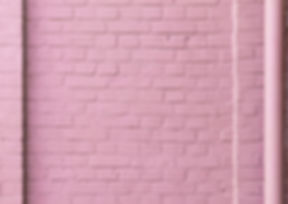4 Common Myths About Feng Shui that Need to Be Shattered
- Jamie Bass
- Sep 20, 2018
- 3 min read
Updated: Aug 12, 2021

When I tell people I’m a feng shui consultant, I see a wide range of reactions. Some people think it’s really cool (which it is!), others are surprised that that’s what I do, and the rest just nod their heads, smile, and awkwardly look away. Underlying all of these reactions, though, is general confusion (and usually a lack of knowledge) about what feng shui is. Feng shui is a popular topic (check out your local bookstore for proof), but it can be hard to get a true understanding of what it really means to “feng shui your space.”
Let’s Start With What Feng Shui Is Not
There are LOTS of misconceptions about feng shui, so let’s first outline some of the most common myths:
Myth: Feng shui requires redecorating or remodeling and will be a very expensive and time-consuming process.
Fact: This could not be further from the truth. Feng shui can typically be accomplished without buying anything additional or re-configuring the layout of your house. Most changes can be implemented in an afternoon!
Myth: Feng shui is a religion or based on magic or psychic powers.
Fact: I once had a client ask me if my consultation included tarot card readings because she was nervous about having that be part of her consultation! Feng shui is based on Taoism, a Chinese philosophy. It has no religious basis and does not pull in mystical practices or readings. Feng shui uses the laws of nature and science to balance a space. And, since it’s been around for over 5,000 years, it’s very well time-tested.
Myth: You’ll have to use crystals, fringe, wind chimes, or Asian decorations to properly feng shui your space.
Fact: You should only use accessories and decorations that are meaningful to YOU and reflect your taste, history, and preferences. These will have more personal significance and be more influential than anything else.
Myth: Feng shui is going to point out everything that I’ve done wrong.
Fact: There is no blame, judgment, or shaming in feng shui! As we evolve as people, our spaces need to evolve with us. Sometimes, it can be hard for us to notice this because we’re too close to it, we’re afraid to make changes, or we’re dreading the amount of work involved (which I’ve already mentioned is not as much as is commonly believed). Feng shui is a tool to use just like any other. It’s more important to have your space work for you and not against you!
So…What IS Feng Shui?
At its core, feng shui rests on the idea that our physical surroundings help to shape our experiences in life. What we see and experience (especially subconsciously) in our spaces can impact our lives. Feng shui is about the interaction between a person and his or her environment: we already know that we influence our environments, but equally important is how our environments can seriously impact how we think, feel, and act. This is why it’s essential in feng shui to fill in any cracks in your walls, fix or replace broken furniture and windows, and fix leaking plumbing or running toilets. If things aren’t in good working order in our homes, how can we expect our lives to be in good working order?
Feng shui identifies conditions in a space that impact us in positive or negative ways, and the goal of a feng shui consultation is to adjust your environment so that it’s energy is balanced and supportive. When implemented, feng shui can be a powerful tool for effecting change in your life.
Feng shui relies on four core concepts to make any space feel more aligned:
Tao: Tao is about connections within our home and our lives. It’s about feeling connected to the natural world, family, friends, communities, and the universe.
Yin/Yang: Yin and Yang are about balance and how opposites support each other and comprise a whole. One cannot exist without the other.
Chi: Chi, otherwise known as “vitality,” is the feeling that permeates the space and is typically something that can be experienced through the five senses.
Five Elements: Feng shui uses the five elements – Wood, Fire, Earth, Metal, and Water – to define and recognize the world.
And those are the basics of feng shui! Not so scary or weird. I hope that with this new knowledge, you’ll start to think differently about feng shui and might even consider picking up one of those books at the local bookstore – it could change your life for the better!
